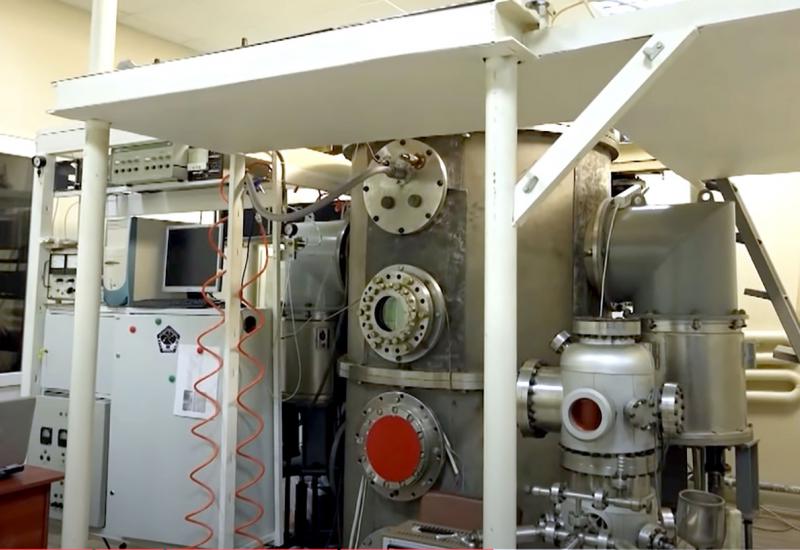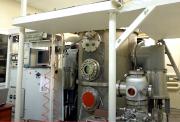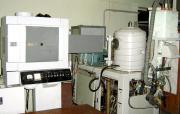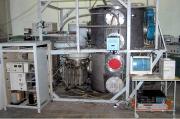By the decree of the Cabinet of Ministers of Ukraine No. 1206 dated November 10 this year, the Complex of test beds for research and testing space technology products of Igor Sikorsky Kyiv Polytechnic Institute included in the State Register of Scientific Objects of Ukraine that have the National Asset status. This long-awaited decision will contribute to the successful fulfilment of the university's Space Program tasks.
The history of creation
There are a lot of man-made space objects in Earth orbit: they explore the distant Universe, send unique information and enrich scientific thought. The only domestic nanosatellite PolyITAN-1, developed and manufactured by Kyiv polytechnicians is among them.
"Ukraine is one of the five countries with space technologies. We can produce launch vehicles, spacecraft, and control systems, - Michael Ilchenko, Academician of the National Academy of Sciences of Ukraine, Chairman of the Academic Council, Head of the University's Space Program, reflects. - Domestic specialists have created world-recognized spacecraft. In particular, the PolyITAN-1 and PolyITAN-2-SAU nanosatellites, created at Igor Sikorsky Kyiv Polytechnic Institute, sent their signals from Earth orbit."
For reference: PolyITAN-1 has been in Earth orbit since June 19, 2014, and is still active. PolyITAN-2-SAU was launched on April 22, 2017, by the Antares OA-7 expendable launch system from NASA's Cape Canaveral Spaceport, USA, to the International Space Station. It detached from the ISS on May 26, 2017, and worked until February 5, 2019.
However, polytechnicians’ space developments are not only a combination of scientific inquiry and engineering fantasy, but painstaking research and testing of the created devices for their reliable and long-lasting functioning in the conditions of outer space.
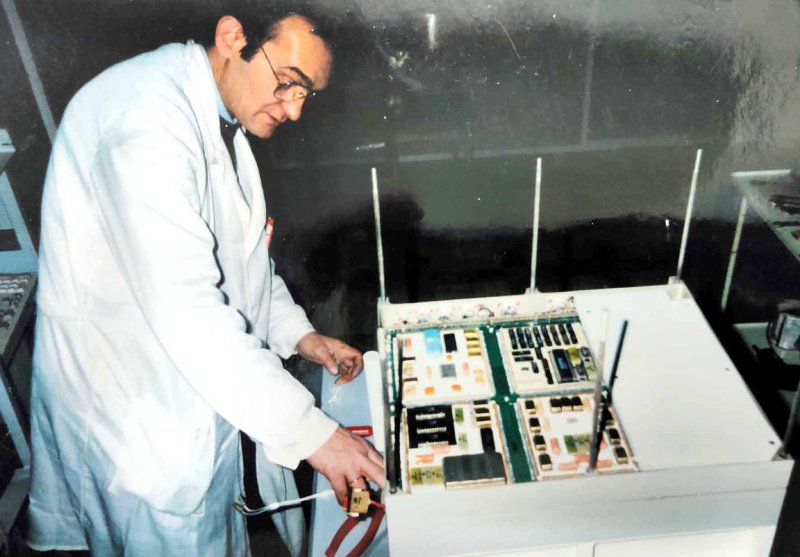
"Until the mid-1990s, there were no complexes of experimental installations for conducting thermobalance and thermovacuum research and tests in Ukraine, which complicated national research and international cooperation in the space industry," Viktor Khominich, the head of the thermal vacuum testing laboratory, senior research fellow, recalls. At the same time, the status of a national research university, which Igor Sikorsky Kyiv Polytechnic Institute has, suggests the presence of scientific and research complexes of national and world importance, with capabilities that meet international requirements and can be used in international projects, and allow to carry out educational work aimed at training national technical personnel.
Therefore, in 1995, for the first time in Ukraine, Igor Sikorsky Kyiv Polytechnic Institute began work on the creation of a complex of installations that would solve the tasks of space research, space objects testing, and national personnel training.
Today, the university operates a unique set of test beds that meet international requirements for ground-based research and space technology products testing. This is the TVK-2.5 stand for testing micro- and nanosatellites, the TVK-0.12 stand for conducting thermovacuum research and testing elements of space technology and nanosatellites, a stand for determining the differential potential difference of insulating surfaces of satellites and the occurrence of high-voltage partial discharges, a high-voltage charged particles accelerator for space materials science problems solving, and super-high-vacuum facility.
From far and wide for a test
A complex of specialised test beds of Igor Sikorsky Kyiv Polytechnic Institute made it possible to carry out thermobalance and thermal vacuum tests in accordance with international requirements, in particular, the first Ukrainian microsatellite MS-1-TK-TV (2000 - 2001) and the first Ukrainian nanosatellites PolyITAN-1 and PolyITAN-2-SAU (2014 - 2019 yr.).
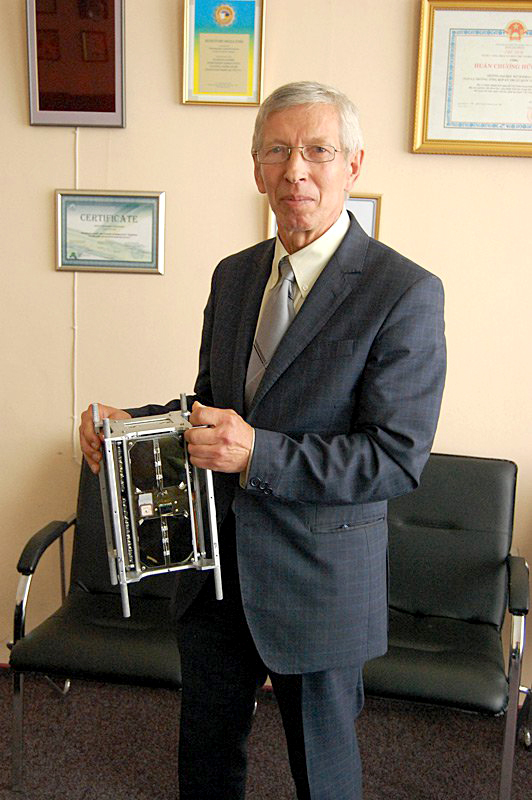
"Igor Sikorsky Kyiv Polytechnic Institute as the principal investigator of the developed nanosatellites PolyITAN-1 and PolyITAN-2-SAU testing according the Cubesat standard, proposed and carried out a number of relevant studies: academic and technological - on PolyITAN-1, and applied, such as studying the Earth's thermo- and ionosphere characteristics - on PolyITAN-2-SAU. In addition, the university provided scientific methodological guidance and project management at all stages of preparation, conducting, processing and test-result pretension," Borys Rassamakin, the head of the aluminium heat pipe and Cubesat nanosatellite technologies laboratory, says. And he continues: "Ground-based test equipment was specially developed and manufactured at Igor Sikorsky Kyiv Polytechnic Institute for scientific methodical support, spacecraft preparation, conducting experiments that simulate space conditions - vacuum, temperature gradient, and radiation near the spacecraft: a set of test beds designed to confirm theories, test hypotheses, work out advanced designs and technologies in the conditions of space flight".
Then the researcher concludes: "According to the results of the experiments carried out at the complex, scientific base and capabilities has been formed for experimenters in the space flight conditions, scientific methodical support, preparation and production of certain types of space equipment and spacecraft, in particular PolyITAN nanosatellites of the Cubesat standard".
Also, the complex of test beds was used in a number of domestic and international space projects: "LYBID-1" (Ukraine, 1995 - 2001), "AUOS-SM-KF" (Ukraine, Russian Federation, 1996 - 2001), "MS-1 -TK-TV" (Ukraine, 2000 - 2004), "EgyptSat 1" (Ukraine, Arab Republic of Egypt, 2004 - 2007), "RESURS" (Russia, 2001 - 2007), "Cyclone-4 " (Ukraine, 2005 - 2010), "Accelerator module using a Hall-type reactive electrical system for a scientific satellite" (Great Britain, 2014) and "PolyITAN university nanosatellites of Igor Sikorsky Kyiv Polytechnic Institute " (Ukraine, 2009 – 2021), which confirms the international level of both the capabilities used and the scientific and technical personnel qualifications.
At the same time, during the implementation of projects, scientists of Igor Sikorsky Kyiv Polytechnic Institute cooperated with the State Space Agency of Ukraine, Arsenal Central Design Bureau, Pivdenne Design Office, National Aerospace University «Kharkiv Aviation Institute», Research Technological Instrumentation Institute State Enterprise, State Research Company “Conecs” (Ukraine), NPO Lavochkin, TsSKB-Progress (Russia), "THALES ALENIA SPACE" (France), "Ecole Nationale Supérieure Mecanique et Aerotechnique" (France), "Euro Heat Pipes S.A." (Belgium), "DLR" (Germany ), University of Rome “La Sapienza” (Italy), FLIGHT CONTROL LLC (USA-Ukraine), Shenyang Aerospace University (PRC).
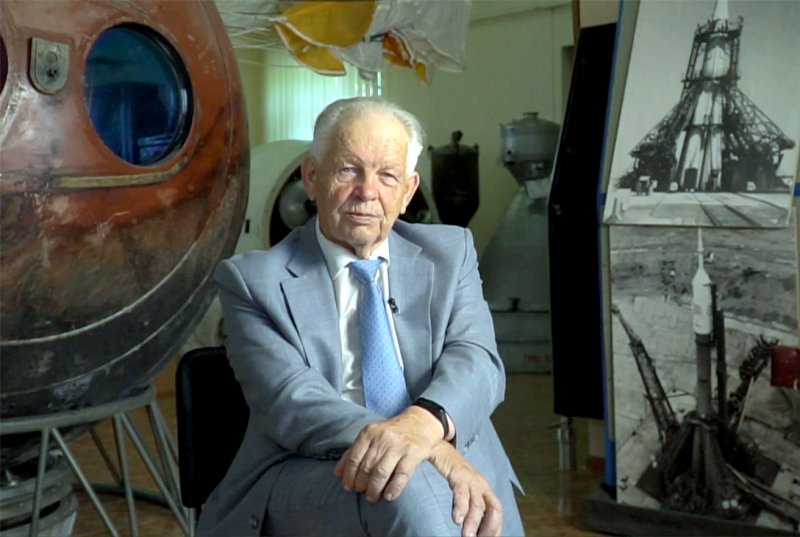
"We have been working consistently for a long time to recognize the test beds of Igor Sikorsky Kyiv Polytechnic Institute as a national asset: the requirements of the legislation changed, the heads of the Ministry of Education and Culture changed, our perseverance only remained unchanged. Now we can proudly say that the complex of specialised test beds of Igor Sikorsky Kyiv Polytechnic Institute for ground-based research and space technology products testing is recognized not only by the professional community, but also at the state level, says Michael Ilchenko. Hence, a lot of effort and money has been spent on creating special thermal vacuum chambers capable of physically simulating the impact of the impressive factors of outer space: temperature up to -190°C, pressure up to 10-6 mm Hg, the Sun and the Earth radiation, etc. Other beds are also unique and not cheap. We have been using them especially actively lately, because new companies that work in space have appeared in Ukraine. We cooperate with them and carry out research on products that their companies are preparing to launch into outer space. These contracts support our laboratory, and our employees.
From now on, we will work in fundamentally new conditions: the laboratory will have budget funding, staffing list, and annual support. It is extremely important that our real space projects will get institutional and financial support."
It should be added that post-graduates and students are actively involved in the work in the laboratory as part of the training of highly qualified national engineering personnel in the field of space research and testing.

